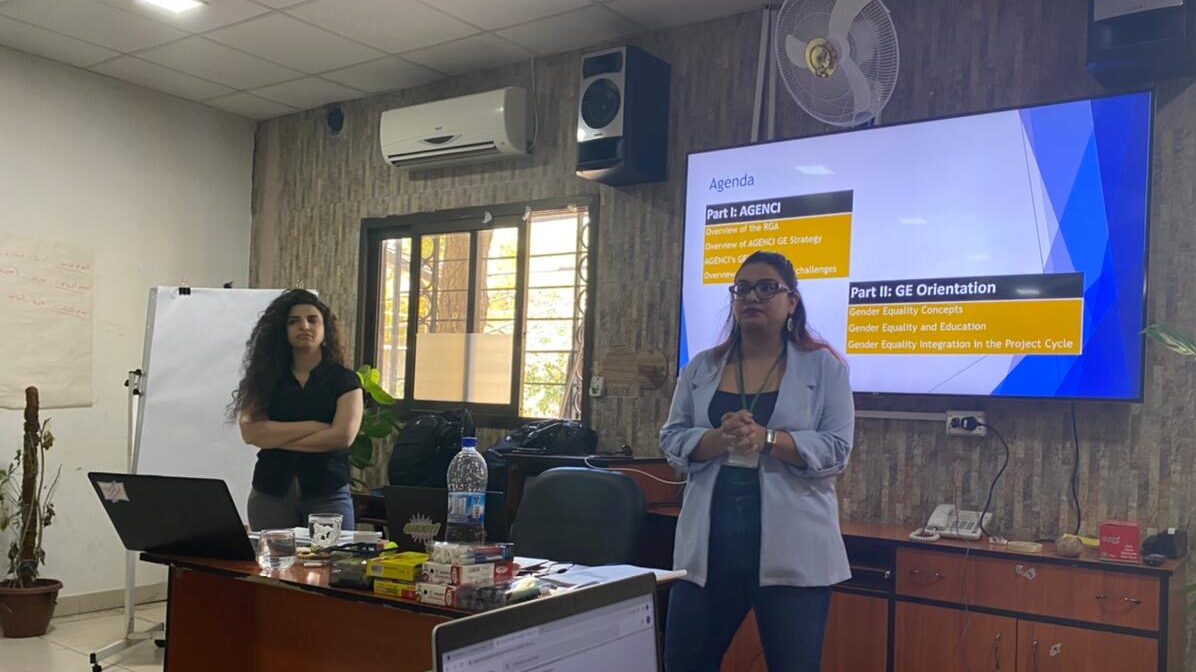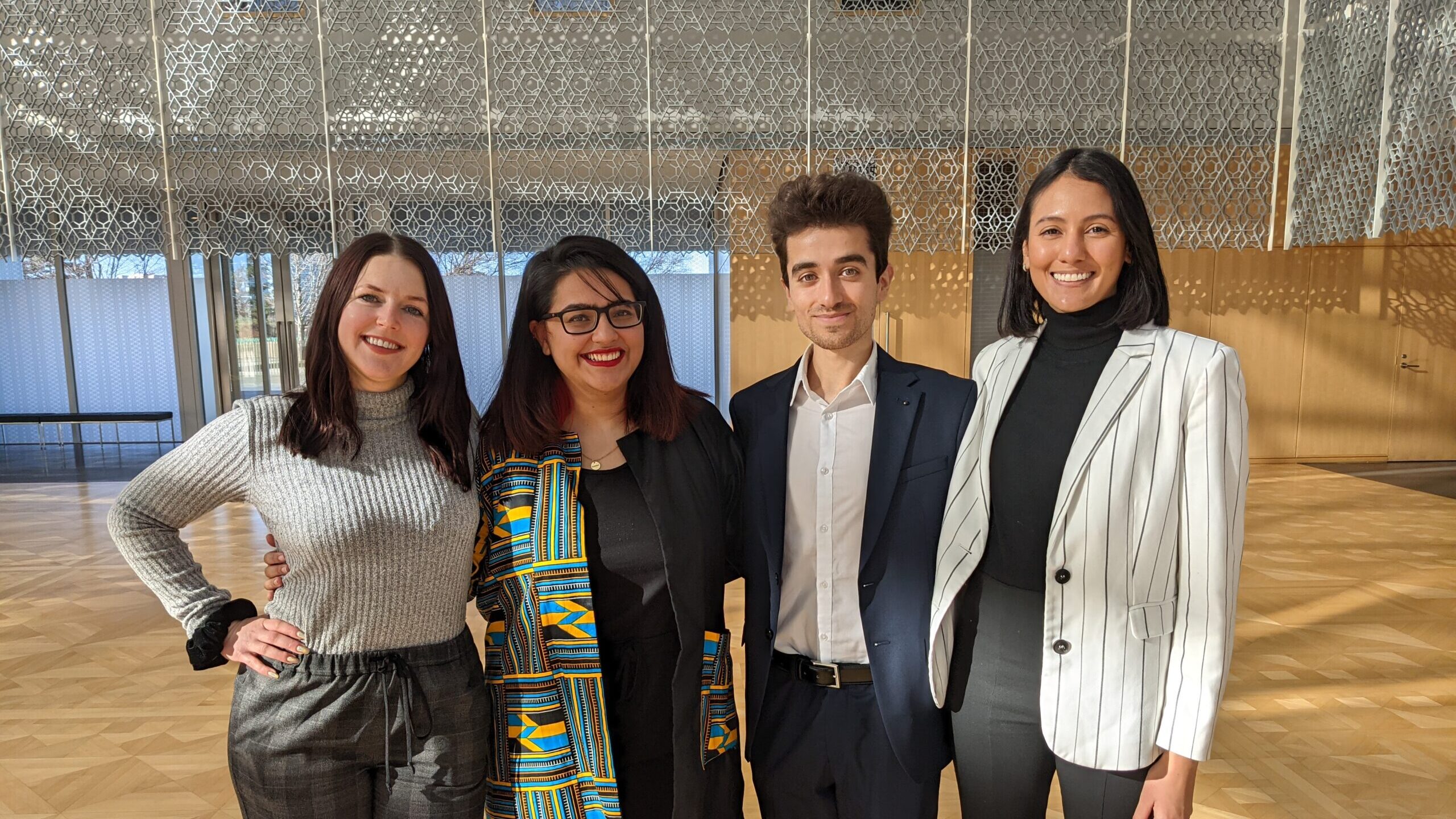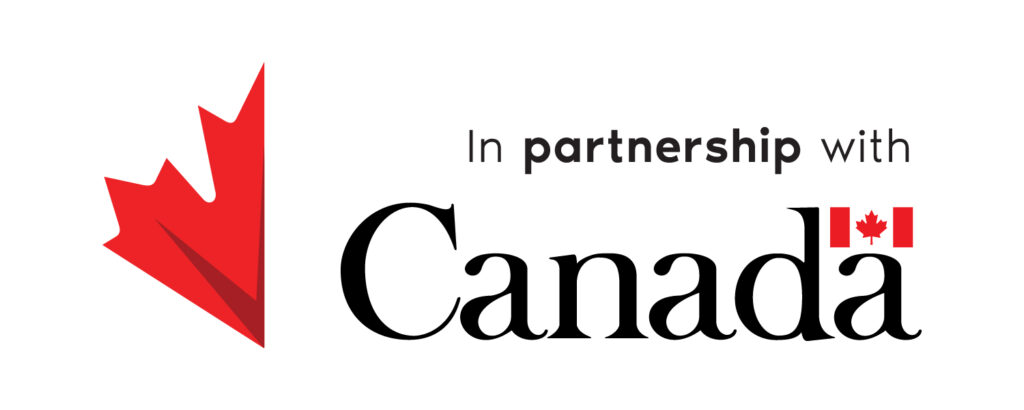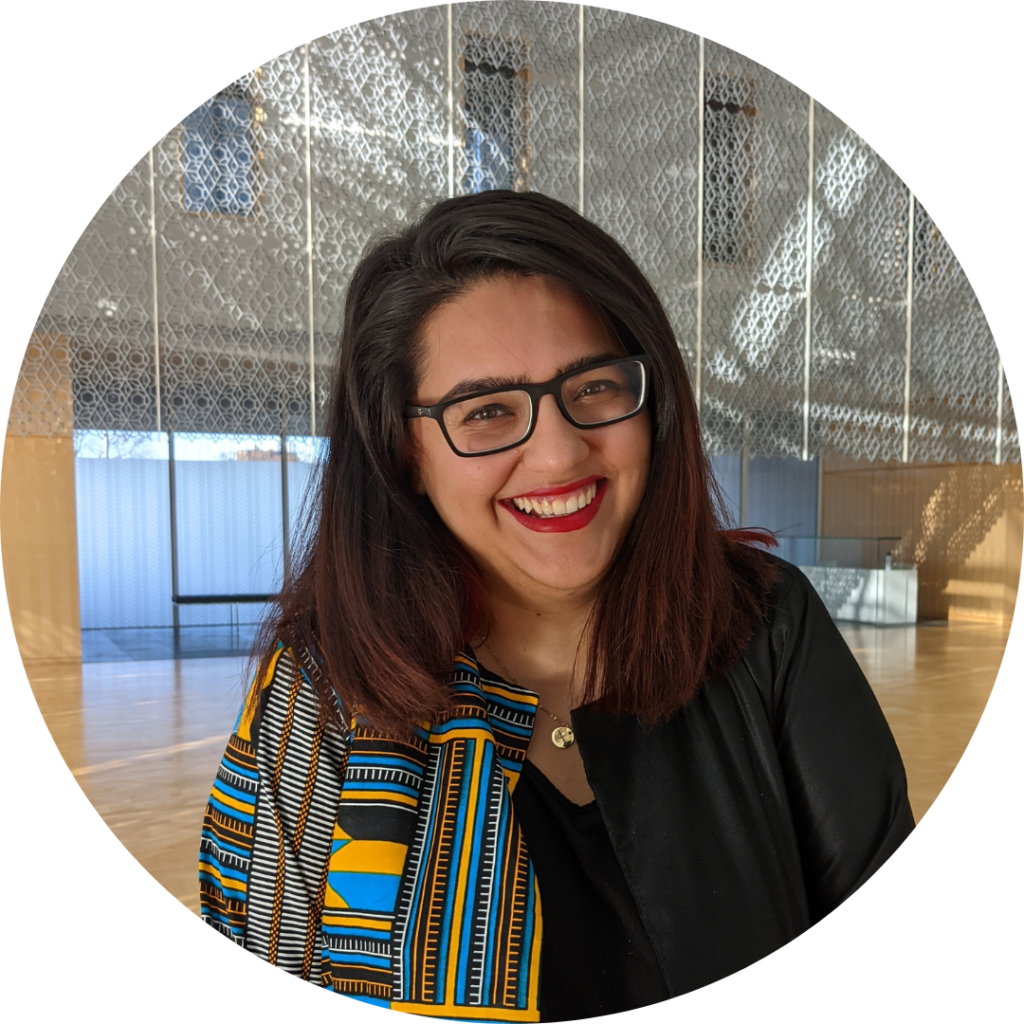Women and girls make up roughly half of the world’s population – when you empower women and girls, you also empower their households and communities.
“There’s a ripple effect for the whole community because new ideas are heard, diverse avenues of income are allowed to be created, and whole systems are allowed to change,” explained Rameesha Qazi.
Rameesha is the Gender Lead at the Aga Khan Agency for Habitat (AKAH), helping AKAH develop gender policies and accountability frameworks, and integrate gender equality into their programs.
Before joining AKAH, Rameesha worked at AKFC, first as an International Youth Fellow, and then as a Gender Advisor. But Rameesha’s passion for gender equality started long before that. We sat with her to learn more about her reflections on gender equality and international development.
You have a degree in international development and are now working on a Master’s in Feminist and Gender Studies. What sparked your interest in gender equality?
I did a lot of extracurricular activities in high school that were male-dominated, like robotics. I worked my way to be team captain, but there was a lot of head-butting with the guys on the team since I was one of the only girls and I was also in a leadership position. This was the first time where I was like, “It’s not fair that the boys get to do all this work, and we don’t even get time in the shop. We don’t get to learn what the machinery is,” and stuff like that.
I also grew up in a Muslim household, where my parents weren’t super traditional. But seeing the dynamics in different households and different groups that we were a part of would really resonate with me. My parents tried to keep things very fair between my brother and me, so it was instilled in me that just because I’m a girl, my brother and I shouldn’t be treated differently.
In a nutshell, how would you describe gender equality?
In the most basic of terms, gender equality is making sure that everybody, regardless of what they look like or what their bodies present as, has the same opportunities to realize their potential and make decisions about their lives.
In development programming, we go in and work with communities to understand the root causes of inequality or poverty that might exist and come up with sustainable solutions that haven’t been tested before. We know that women and girls are usually tasked with housekeeping and getting food and water and all those kinds of activities, [so] when you empower them, their households and communities will be affected.
I worked on a project being implemented in Guatemala, where they were training indigenous women to become solar engineers – and these women were not literate, so they had to find an institution to teach solar engineering using hands-on techniques and pictograms.
These women were able to get electricity in their households and communities and created a whole new system of opportunities. Some women opened stores to sell the parts needed, and others gained employment from the installation work. As homes now had electricity, kids were able to study later, so grades went up in school; women didn’t have to keep their activities to the daytime and were able to get part-time jobs, and hospitals and other community services could stay open longer because they now had a consistent and reliable source of electricity.

In your opinion, in light of the inequalities reinforced by the COVID-19 pandemic like the caregiving burden on women, what are some of the biggest challenges to gender equality?
COVID undid a lot of the work done, which is heartbreaking to see. It’ll take a bit of time and money, and I think this is one of the things that donors aren’t thinking about yet – how do we recover the ground that we lost?
Another thing is the intersection of gender equality and climate change, and any kind of conflict really. We must understand the different impacts on women and girls and boys and men. How do we build resilient resources? How do we hold people accountable and put systems in place that are adaptable and sustainable?
So, with these challenges and threats to gender equality, what are some opportunities you see for the future of this work?
One of the new and innovative things that have come out of the pandemic is how we’re able to connect with people virtually. We have the space and opportunity to hear from women leaders and communities we couldn’t access before and learn about their challenges and success.
Organizations based in the Global South have been learning without Western influence, and if we can connect with them on their learnings and best practices, then the Western organizations who bring the money to the table can do their jobs better and leverage the learnings from the communities. It is crucial that local communities are driving innovations because they live there, they are the experts. They know what they need and how their systems should work to be effective.
Another moment of opportunity that I wish more organizations would leverage is that there are a lot of young people who care about global issues. We’re so plugged into social media, so we get everything in real-time. How do we leverage this huge group of young people and make it so that their creative thinking and innovations can be brought to the table?
We’ll see so much innovation if all people are allowed to have a seat at the table and have their voices heard. Because these people have often been ignored, and so the ideas that they might have might be very different from the ones that we’ve tried in the past. So why not give it a go?
You also worked on a survivor-centred support resource for sexual exploitation and abuse with Digna. Could you speak a little bit about this work?
I’m a survivor of sexual violence, and my story took place overseas while I was on contract. It very quickly became apparent that knowledge of on-the-ground resources was limited. Once I came back to Canada, I talked to a lot of other survivors who also worked in international development and it really cemented how important it would be to have a resource that you can use in the event of an emergency.
For me, there was a disconnect between what information was “held” and where – for example, in the country I was in, only national hospitals, not international hospitals, were allowed to administer rape kits or provide HIV medication. The electronic pay system didn’t work late at night, so I needed to have cash with me. In the country I was in, you had to fill out a police form before going to the hospital, otherwise, you weren’t allowed to file one.
This resource is to help organizations create a reference for the survivor or whoever is accompanying them, so they know things like “This hospital can give you this medication” or “This medication isn’t available in this country. Maybe travel with it instead.” And hopefully, this resource can also inform an organization’s insurance packages and policies, how they’re training their focal points, and increase accountability to all of their staff and stakeholders, regardless of if they are survivors or not.
I’m not the first person to go through this, and I know that I’m not going to be the last. But hopefully, for one person, it’ll just be a little bit easier because they know what resources are out there and who they can turn to for help.
What advice do you have for young people who want to get involved and make a difference?
It can be disheartening sometimes; you might feel like you’re not making any progress. I did unpaid internships for years – but all your hard work will pay off. Take care of yourself physically and mentally.
Check out the international development program at Humber College, and the AKFC Fellowship. The standards at the AKDN are quite high, but we make sure the Fellows are ready to hit the ground running! You’ll get to be in the field, meet people in the AKDN, see tremendous work being done, and get a taste of what it’s like in development.

Applications for the 2023-2024 cohort of the International Youth Fellowship are open! Apply by Feb 1, 2023.


